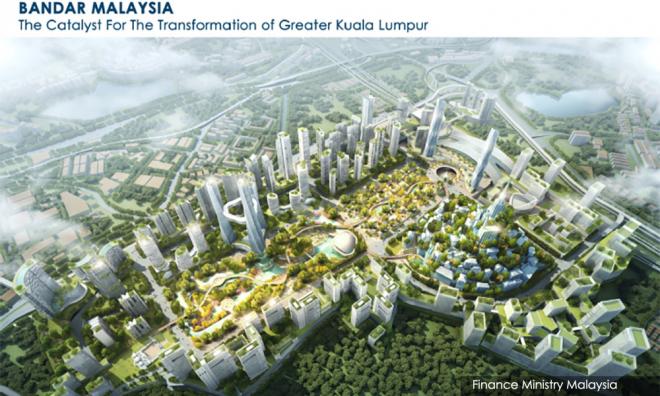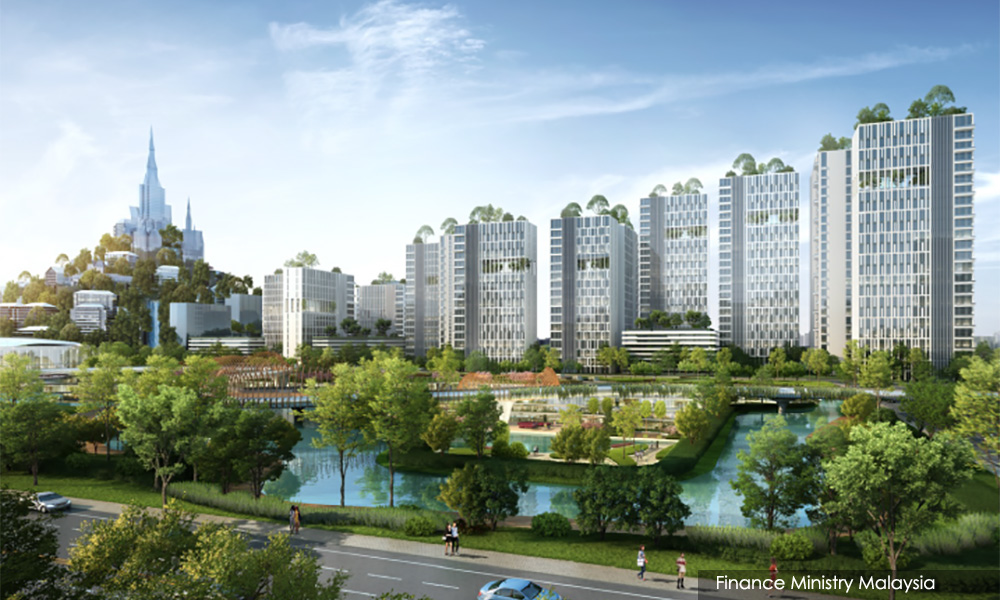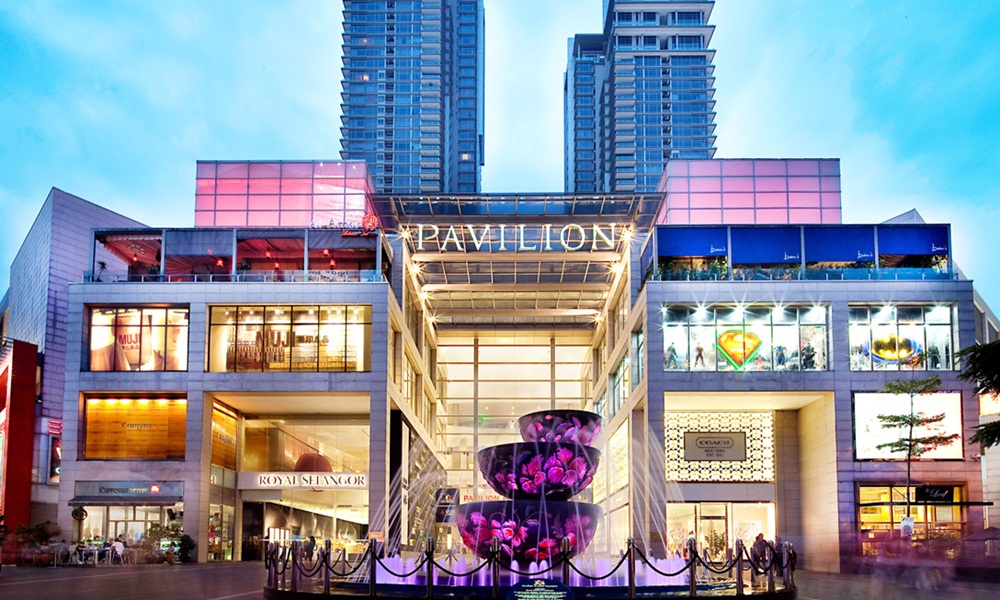
QUESTION TIME | There are two reasons why the Bandar Malaysia deal signed on Dec 17 should have been scrapped - one, the price at which the land was transferred to the consortium was way too low and, two, the government is likely to forego a huge amount in development profits which it could have kept for itself.
This rotten deal, which will eventually cost more than 1MDB’s losses of a minimum RM30 billion, is an example of continued patronage politics in Pakatan Harapan bordering on or even involving corruption. It includes a tycoon who eventually bought over the prime minister’s bread business, indicating serious conflicts of interest, and the needless involvement of a China company. More on that later.
In his speech at the signing of the deal, Finance Minister Lim Guan Eng (below) laid the credit (if you can call it that) squarely on the PM. “The revival of the Bandar Malaysia project is due largely to the efforts of YAB Prime Minister. In April this year, YAB Prime Minister was in China to lead and witness the signing of the Framework Agreement on 25th April 2019 which revived this project.”
Not satisfied with that, he continued, “Iskandar Waterfront Holdings Sdn Bhd (IWH) and China Railway Engineering Corp (CREC - a China state company) as a consortium won the tender to develop Bandar Malaysia back in 2015.
"With an area of 486 acres, it is the single largest development plot within the city of Kuala Lumpur. In May 2017, the deal was abruptly terminated following the unravelling of the 1MDB scandal.
"The present government revived the deal after the necessary detoxification exercise proved that it can still generate economic benefits on urban development for Malaysia.” He did not elaborate on the detoxification exercise.

But that’s not the whole truth. 1MDB started unravelling from 2013 onwards, with the momentum picking up considerably in 2015. However, TRX City had a different story to tell previously. This deal, originally also valued at RM7.41 billion, was signed on Dec 31, 2015 but subsequently terminated by TRX City in May 2017, one year and five months later.
This is what TRX City said on the termination of the deal: “This is because, despite repeated extensions being granted, IWH CREC failed to meet the payment obligations outlined in the Conditions Precedent under the share sale agreement. As a result, the share sale agreement between the parties stands null and void with immediate effect.
“TRX City will immediately be inviting expressions of interest for the role of master developer of Bandar Malaysia, with full ownership being preserved by the Ministry of Finance.
"The selection process will involve very strict criteria, including track record, speed of delivery and financial capability for such large scale development. This is to enhance all aspects of Bandar Malaysia, including its role as a business, transport, residential and tourism hub,” it said.
The consortium, however, said in response that “this does not fully and accurately reflect the circumstances and conduct of the parties in this matter”.
In a surprise turnaround, the new Harapan government revived the terminated deal. Under the deal a 60 percent stake in Bandar Malaysia is to be sold to the initial contractor IWH CREC Sdn Bhd - a consortium comprising Iskandar Waterfront Holdings Sdn Bhd (IWH) and China Railway Engineering Corp (CREC) - because the previous administration had been “unfair” to them in terminating their agreement. The consortium is 60 percent owned by IWH and 40 percent by CREC.

IWH is reportedly owned 60 percent by prominent developer Lim Kang Hoo, through his private company, Credence Resources Sdn Bhd, while the remaining shares are held by Johor government company Kumpulan Prasarana Rakyat Johor (KPRJ).
According to its website, KPRJ, wholly owned by the Johor government, was set up in 1995 and has a paid-up capital of just RM1 million. The remaining 40 percent of Bandar Malaysia is owned by TRX City, a wholly-owned subsidiary of the Finance Ministry.
Good reasons?
Till today the government has not announced good reasons for reviving this deal which had been terminated by the previous Najib administration, and which was instead going to invite international bids for a master planner, with the ownership always being under TRX City, which is wholly owned by the Finance Ministry. This would have been a far superior deal.
The revived deal is deficient in two respects. First, the 6 percent stake in Bandar Malaysia was sold to the IWH-CREC consortium for a price of RM7.41 billion, which puts a value of RM12.35 billion on the entire 486-acre land. That is 21.17 million sq ft, giving a price per sq ft of RM583 per sq ft, which is far below the commercial value of such land. Even if affordable houses (say costing about RM450,000) are going to be built, much money can be made as they will be high-rise condominiums.
Here are some indicative prices of land in and around the town centre. Land prices transacted include about RM7,200 per sq ft for the Pavilion shopping complex (below) land in Kuala Lumpur way back in 2010, RM4,700 for land at the Tun Razak Exchange and other transactions for as high as RM3,500 per sq ft more recently, according to a report.

That means the Bandar Malaysia land is seriously undervalued. Even if the land is valued at RM3,000 per sq ft, the undervaluation comes up to RM51.2 billion [(3000-583) X 21.17 mil]. That’s probably more than the total amount of money which will be lost eventually by 1MDB.
Put it another way, if the government had kept all of Bandar Malaysia and managed it very well, there is more than an even chance that in time it will recover more from this one project than all the money lost from 1MDB.
Second, the government loses development profits. Let’s consider the gross development value, or GDV, of the project which is stated to be RM140 billion. Let’s say the margin of profit of this is 20 percent, excluding the profit that is already made from the undervaluation of the land. That adds a profit of a further RM28 billion, making in all RM79.2 billion! Remember, we are using conservative figures.
According to Finance Minister Lim, dividends from land sales will be split 50-50. But the statement is silent on whether development profits will be split the same way. If they are, then the government will get 50 percent, or RM39.6 billion, in total through TRX City.
This means the government needlessly loses RM39.6 billion to other entities, as well as control of the project in terms of the masterplan, contractors, etc. This will go to the IWH-CREC consortium.
CREC owns 40 percent of the consortium and will get RM15.84 billion, a totally needless transfer to a China company because all construction and property expertise can be bought. and there is considerable property expertise within Malaysia. Anyway, how much property expertise can a railway construction company have?
The lion’s share of 60 percent, or RM23.76, will go to IWH, which is 60 percent owned by Lim Kang Hoo and 40 percent by Johor’s KPRJ which has a mere RM1 million paid-up capital. Thus, Lim gets RM14.256 billion, while KPRJ gets RM9.504 billion. The middling property developer becomes a billionaire many times over in terms of value, while a RM1-million company is now worth 9,500 times that.
Anyway it is looked at, this is theft of the highest order - surpassing that of 1MDB. Ironically, the previous government, which robbed 1MDB blind, was doing the right thing by keeping Bandar Malaysia under government control and seeking a master developer. That way all of the profit would have come to the government.
One more thing, and this is very interesting. News portal Free Malaysia Today reported in April 2019, the same month the government announced the revival of this project, that PM Dr Mahathir Mohamad-owned bakery The Loaf was reopened after it was bought over by Lim Kang Hoo’s Ekovest. Mahathir was present and made a speech at the Bandar Malaysia signing ceremony, extolling its virtues. Need we say anymore?
P GUNASEGARAM says until large-scale corruption is killed, expect billions more in public funds to be squandered/stolen. - Mkini


No comments:
Post a Comment
Note: Only a member of this blog may post a comment.